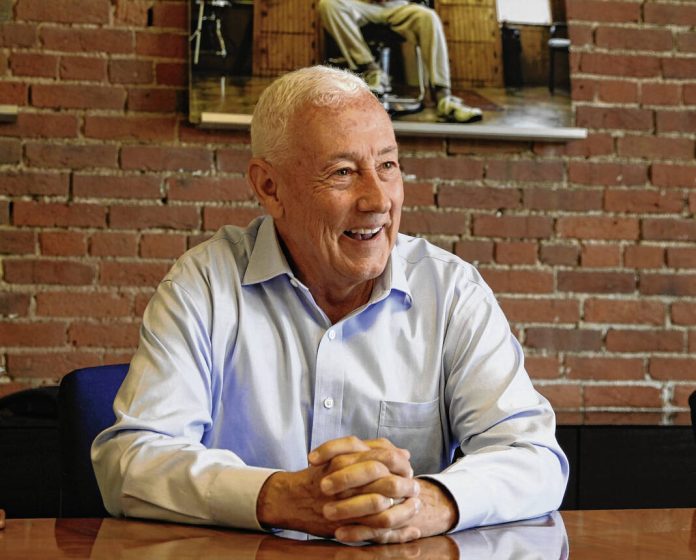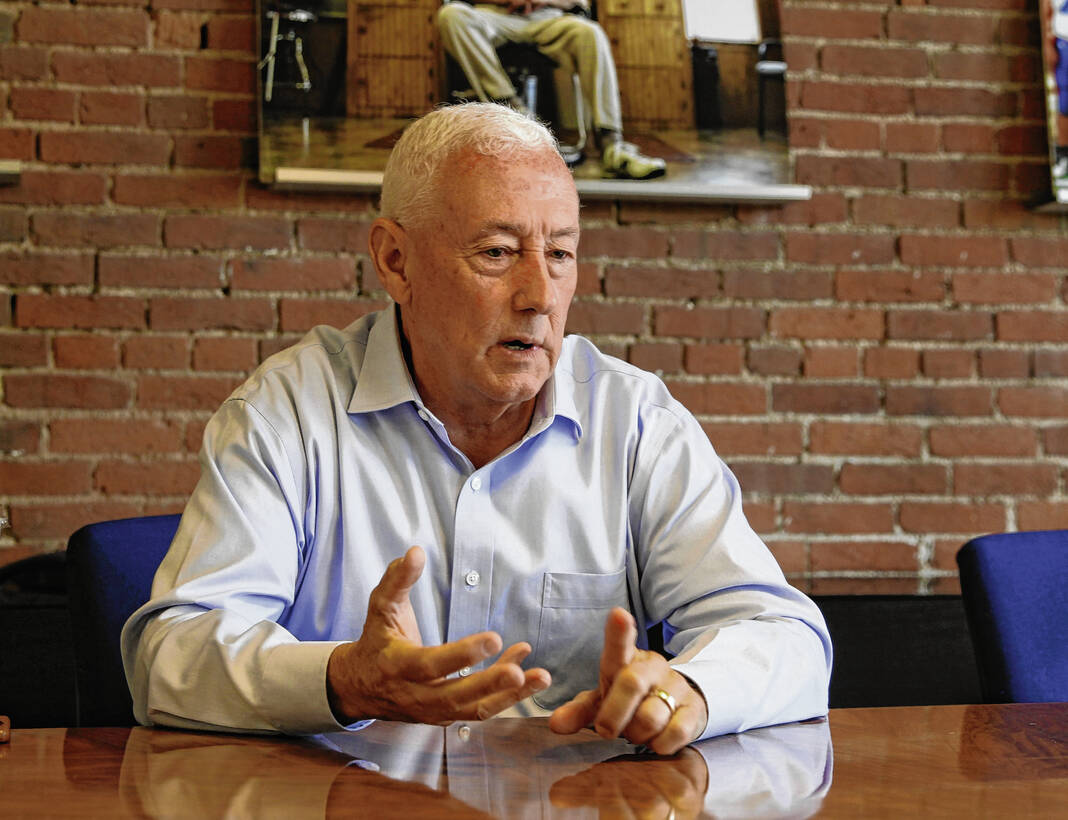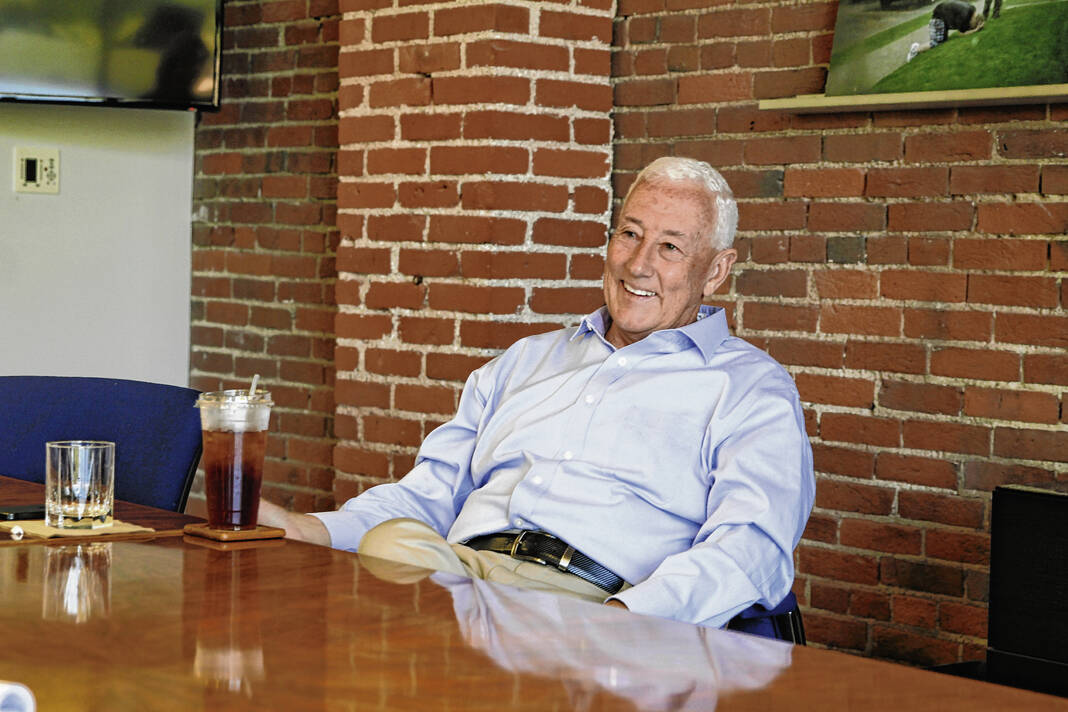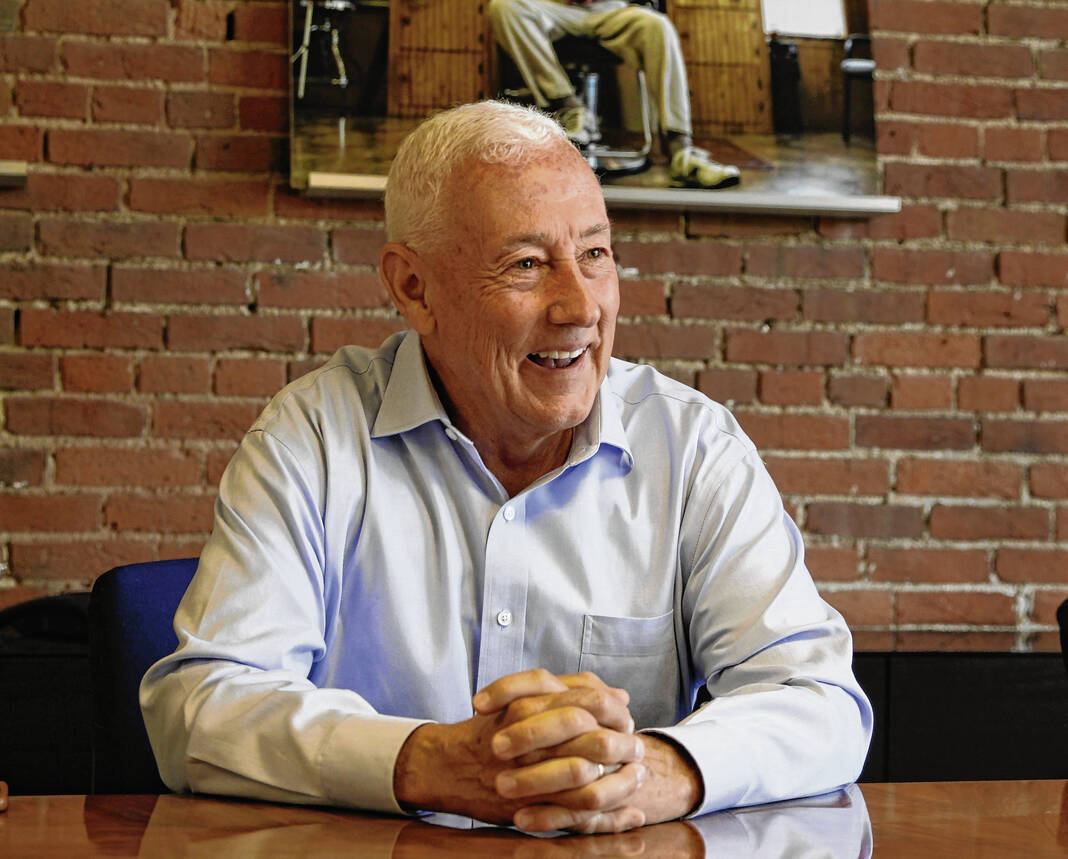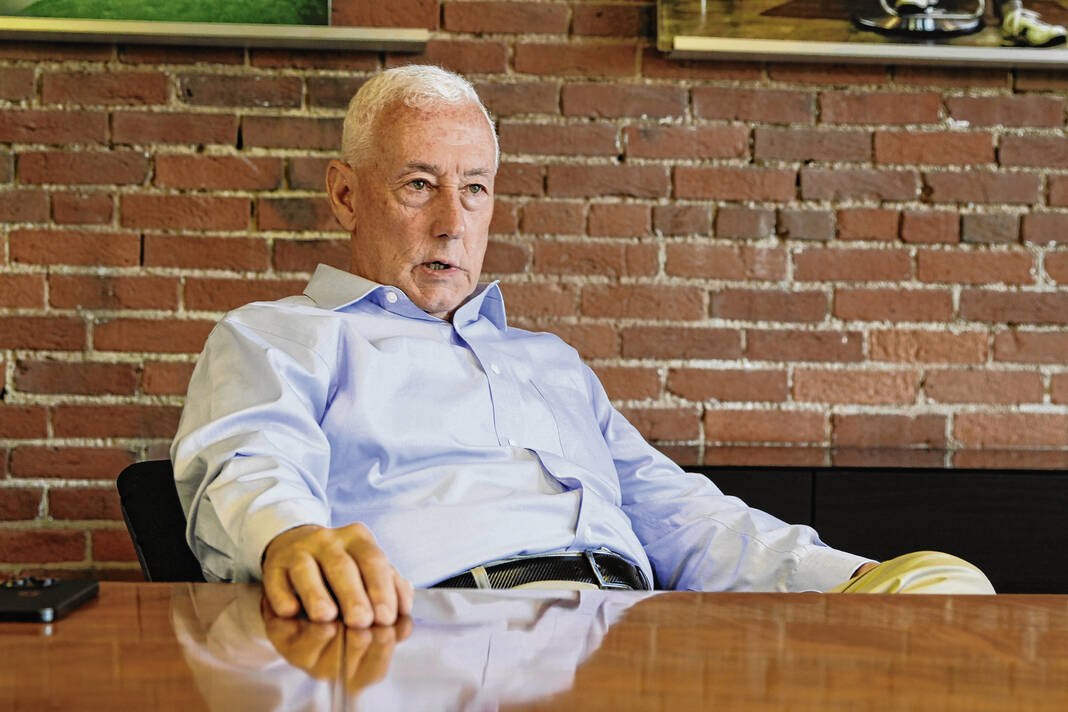Congressman Greg Pence may be on his way out but he’s still committed to serving the people of Indiana’s 6th District.
Pence, 67, says he’s focused on providing constituent services in his final months in office. The Columbus Republican has represented the 6th Congressional District since 2018 but is not seeking reelection this year. Three candidates, a Republican, Democrat and Libertarian, are vying to succeed him in November’s election.
Home from Washington during the U.S. Congress’s August recess, Pence stopped by the Daily Journal on Tuesday to talk about the state of Congress, electric vehicle infrastructure, what he’ll miss about his time in Congress, serving his constituents and more.
‘Unproductive’ Congress
Earlier this year, numerous reports came out that the current Congress is one of the least — if not the least — productive Congress in decades. Through March 26 of this year, the 118th Congress had only enacted 42 bills — the smallest number since around 1990, PolitiFact reported.
Pence agrees with this assessment, saying it’s a fact. Last year, the House threw out a speaker and “got nothing done,” Pence said. Now they’re working to approve next year’s federal budget, which has also been marred by delays.
House Speaker Mike Johnson started the August recess in July — a week earlier than planned — because of lawmakers inability to “get anything done,” Pence said.
“It’s very unproductive. It’s a very divided Republican majority with a very slim majority,” he said.
Pence says lawmakers will not attempt to pass appropriation bills before the Sept. 30 budget deadline, but rather pass a continuing resolution — effectively “kicking the can down the road.” The question now is whether will it be kicked down the road in 2025 or be addressed before the new Congress starts on Jan. 3, he said.
This depends on the outcome of the presidential election. If Republican former President Donald Trump wins, they’ll push it back until after he is sworn in. If Democratic Vice President Kamala Harris wins, then Republicans in Congress may try to get something done before the end of the year, he said.
“I think that’s what any side would do if that’s the case,” Pence said.
Electric vehicle infrastructure
In November 2021, President Joe Biden signed the Bipartisan Infrastructure Law, which included $7.5 billion for electric vehicle, or EV, charging. However, the $7.5 billion investment has produced only seven stations in two years, at least, as the roll-out has been slow, The Washington Post reported.
Since then, the Biden Administration rolled out new rules for emissions from cars and trucks — which would require a lot more electric cars and hybrids on the road within the next decade. The slow build-out of infrastructure could slow the efforts to transition to electric cars.
Pence, a member of the House Energy and Commerce Committee and Environmental Committee, said the infrastructure issue boils down to three components: electricity production, distribution and demand. Right now, there is an electricity shortage because production is being shut down and distribution isn’t matching the demand needed for EVs, he said.
In July, Pence joined a letter signed by 25 other Republican lawmakers expressing concerns that the Environmental Protection Agency’s proposed “Clean Power 2.0” plan is “likely to threaten” the reliability of the PJM Interconnection grid, which serves 65 million customers across several states, including Indiana. The EPA plan has to do with reducing pollution from fossil fuel-fired power plants.
Officials need to be careful to not shut down the “baseload” of energy before distribution lines are in place and need to try to shift the production to where they don’t have distribution, whether it be solar, wind, nuclear other other sources of energy. One idea could be to put small nuclear reactors at coal power plants, which have distribution lines already in place, Pence said.
Pence has held roundtables with several stakeholders, including the state of Indiana, EV charging providers, manufactures and more on the issue, he said. During conversations about the Indiana Department of Transportation’s plan to put EV charging stations every 50 miles on interstates, the distribution problem has come up as there isn’t distribution infrastructure in place every 50 miles, he said.
“The distribution isn’t there to achieve that mandate of so many electric vehicles by pick a year, 2030, 2035 — the ball keeps moving, and the government keeps moving it,” Pence said.
Instead of doing an “EV mandate,” Pence said officials should have looked at hybrids. But auto manufacturers didn’t want this because other markets, like China are requiring more and more new vehicles to be EVs, he said.
The different markets make it hard for manufacturers to produce both, he said.
Hybrids have both a gasoline and a battery engine, which makes them less profitable with both components. Some companies are expanding production, however, like Toyota, because of increasing consumer demand, he said.
For EVs, the government can’t create supply by forcing demand, Pence said.
“That’s Economics 101: [you] can’t create supply by forcing demand. And that’s what they tried to do,” Pence said.
Preparing to step down
While it is a three-way race for Pence’s successor, he believes Republican candidate Jefferson Shreve will win over Democrat Cinde Wirth and Libertarian James Sceniak. He thinks Shreve is a good candidate who is “mature,” which is important as Pence has served with people from both parties who have been “pretty immature,” he said.
One thing Pence will miss most about being in elected office is the people, which he acknowledges is a cliche. This includes his staff, his peers in the Capitol and the people of the Sixth District, he said.
Providing services to constituents has also been big for Pence. As his time in office dwindles, he doesn’t expect that to change.
“Our office maybe might not be as busy in some respects, but we still have things we have to take care of for people in the 6th District,” Pence said.
He still writes a lot of letters, signs onto bills and his staff still answer constituent questions and direct them to resources, he said. While it’s a smaller workload legislatively because it is an election year, it doesn’t change what they do for constituents, he said.
For example, while visiting Richmond last week a woman stopped Pence, hugged and thanked him and his staff for helping her get approved for disability benefits. She had not been able to before, he said.
“If you’re having trouble with the federal government — and lots of people do, it’s just a fact — call our office and we can light a fire. We can get something done,” Pence said. “That’s been the most rewarding thing, that constituent service.”
There is still one piece of legislation Pence still considers a priority and hopes will get across the finish line before he leaves: designating Oct. 23 as a day of remembrance for the terrorist bombing of the U.S. Marine Barracks in Beruit, Lebanon, which occurred on that day in 1983. He was a Marine serving at the base at the time.
“I don’t know if I’ll get that done, but I certainly will be still pushing that before I get out,” Pence said.
He’s also pushed very hard to address nursing and healthcare staffing shortages. Some progress has been made, but more could be done, Pence said.
Pence’s office can be reached by going to pence.house.gov/.


